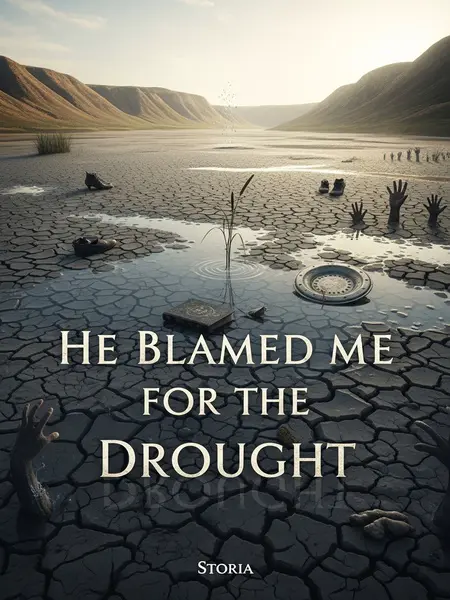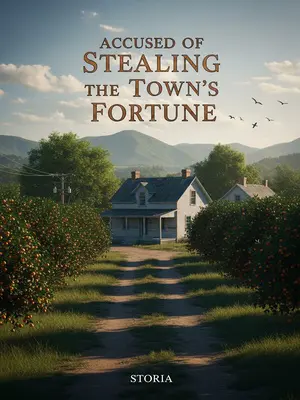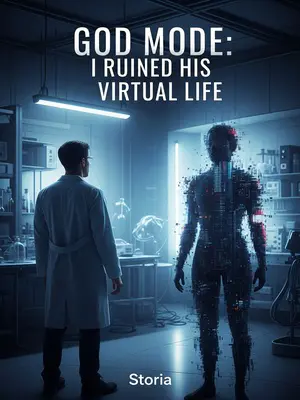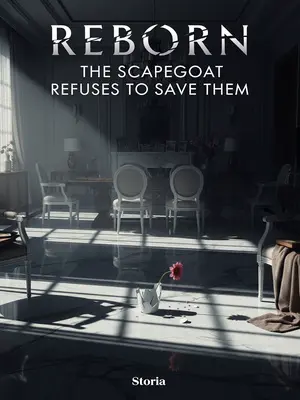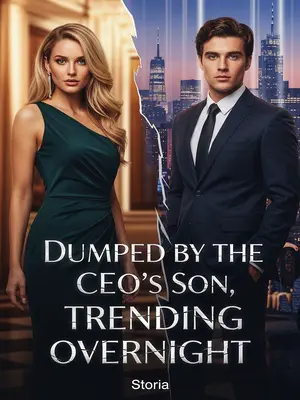Chapter 4: The President’s Demand
I didn’t want to listen anymore. I couldn’t take it.
I stood up, brushing dust from my knees. My heart pounded, but I knew I couldn’t ignore them any longer.
I got up to cast a spell, and in the center of the dry riverbed, a thin stream began to flow.
It was just a trickle, barely enough to wet the ground, but it shimmered in the sunlight. The crowd gasped, then surged forward, hope rekindled. Their joy was almost overwhelming.
It wasn’t much, so it was very precious.
Every drop was a miracle. People knelt, cupping their hands to catch the water, faces shining with joy and disbelief. I watched, breath held, not daring to hope myself.
People were stunned, then erupted in joy, scooping water with their hands and gulping it down to quench their thirst.
Laughter and tears mingled on the riverbank. Some folks splashed water on their faces, others just stared, unable to believe it was real.
They called to each other to hurry home and get containers to store water.
Jugs, buckets, even old coffee cans—anything that would hold a drop. The riverbank became a patchwork of hope, every vessel precious.
Jug after jug piled up on the riverbank, and I heard the short laughter of children…
It was a sound I hadn’t heard in years. For a moment, it almost made me believe things could get better.
That should count as repaying the offerings. I breathed a sigh of relief.
I felt lighter, as if a weight had been lifted. Maybe this would be enough. Maybe I could rest, just for a little while.
I licked my dry lips, planning not to linger any longer.
The thirst never really went away. I glanced at the river, wishing for a drink, but I knew better than to take what little was left. I told myself to move on.
I didn’t notice.
Sometimes trouble sneaks up on you while you’re busy hoping. I should’ve known better than to relax.
The hustler preacher in dark robes was staring suspiciously at that shallow, weak stream.
His eyes narrowed, lips pursed. He didn’t believe in miracles—not really. He was always looking for the trick, the catch, the angle. I could feel his doubt from here.
The miracle of this little river was reported to the President the next day.
Word travels fast in a small town. By morning, everyone knew about the water. By noon, the President’s motorcade was rolling down Main Street, dust rising behind the SUVs. It felt like the whole world was watching.
He came in person with a crowd and SUVs.
It was a spectacle—sirens, flashing lights, men in suits fanning out across the riverbank. The President stepped out, sunglasses gleaming, jaw set. The tension was thick as mud.
But the miracle couldn’t be repeated, and the drought only grew worse—still not a drop of water.
The thin stream dried up as quickly as it had come. The riverbed was bare again, and the hope of yesterday turned into disappointment and anger.
People’s hopes were dashed, as if they’d been deceived, and anger spread like wildfire.
Rumors started—about tricks, about fraud, about the rain spirit playing favorites. The preacher caught most of the blame, but some folks started looking for someone else to blame. I felt their suspicion like a cold wind.
The President summoned the preacher. The angry leader gave him a new order:
The meeting was tense, the President’s voice sharp and cold. The preacher stood with his head bowed, hands clasped behind his back, waiting for the verdict. The whole room felt on edge.
“I want to meet the rain spirit in person, to speak with him directly. Go and deliver my command.”
His tone left no room for argument. The preacher nodded, sweat beading on his forehead. There was no escape.
“The time will be three days from now.”
Three days. Just enough time to plan, to worry, to wonder if a miracle could be forced.
“I don’t care what means or methods you use, at three quarters past noon, you must invite the spirit to appear.”
The preacher swallowed hard, nodding again. The President’s gaze was unyielding, cold as steel.
The young preacher accepted the order and didn’t rest. His way of sending a message to the spirit was to lie on his back by the river and speak aloud.
He sprawled out on the cracked mud, staring up at the sky. His voice was quiet, almost conversational, like he was talking to an old friend, not a spirit.
“That’s about it. Three days from now, please show up, don’t let him lose face, or if he gets mad he’ll fire me…”
He sounded more worried about his job than about the rain. I almost felt sorry for him, even as I rolled my eyes.
I’m not going.
No way. I’d had enough of humans and their demands. Let them find another spirit to blame.
It’s not my job on the line anyway.
I watched him from the shadows, feeling a strange mix of pity and annoyance. He looked so small, so human, sprawled out in the dust.
No one answered him, and before long he fell asleep with a yawn.
His breathing slowed, and soon he was snoring softly. The stars wheeled overhead, indifferent to his worries. I watched, unmoved.
Turning over, he muttered restlessly in his sleep:
“Please, good spirit, help me, please help me.”
His words drifted into the night, carried away by the wind. I wondered if anyone was listening. Maybe I was.
…
That day, drums sounded and the riverbank was packed with people.
It was a festival and a trial all at once. The crowd pressed close, eyes wide with anticipation and suspicion. The air buzzed with tension, thick as thunder.
The President held an axe handle, standing high, looking doubtful:
He stood on a makeshift stage, the axe gleaming in his hand. His face was unreadable, but his eyes were sharp, searching.
“Is this method really effective?”
